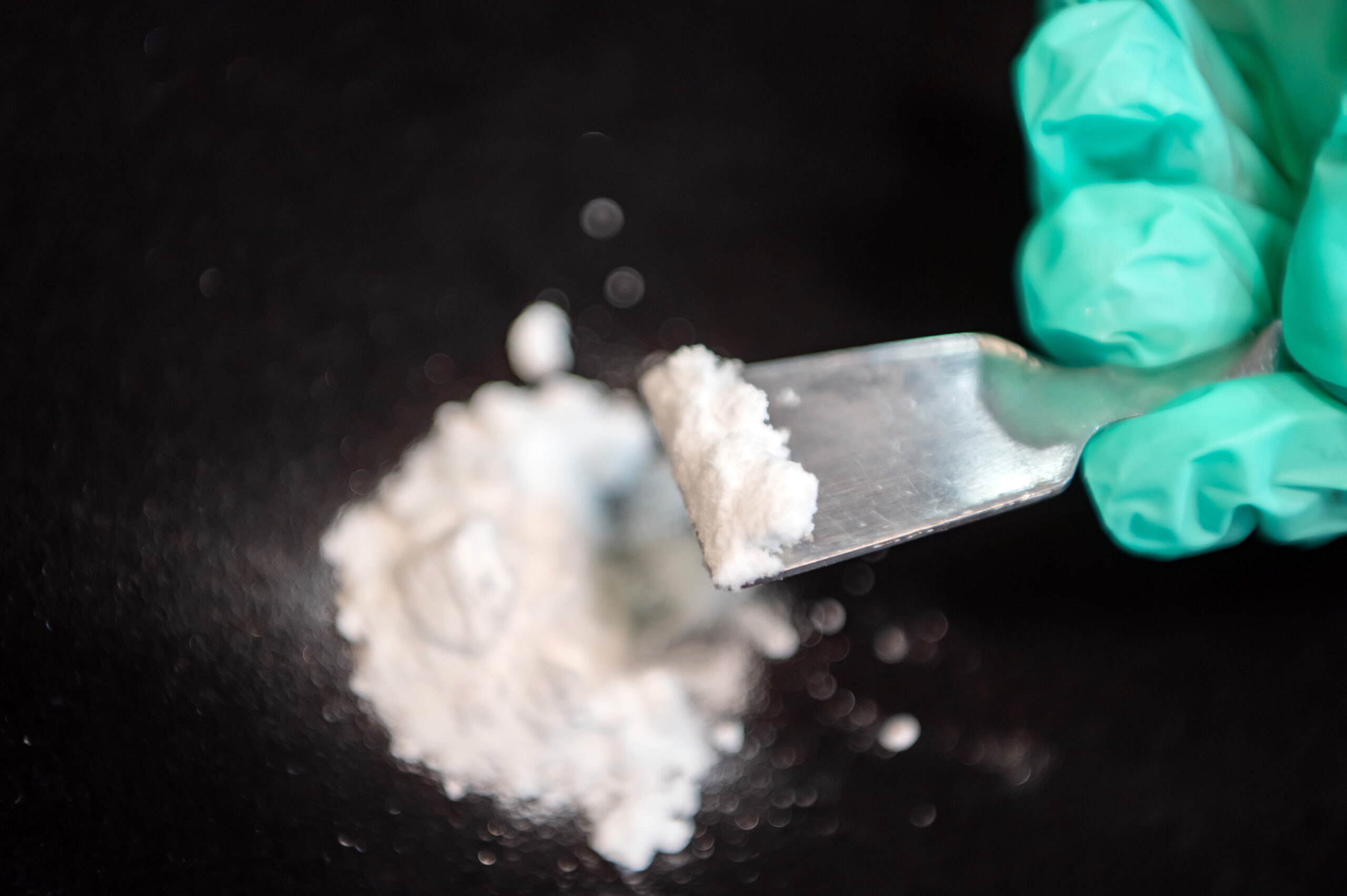
Providing a domestic and sustainable supply of lithium Zero Carbon Lithium™ Business.
We are aiming to become the world’s first dual lithium chemicals and renewable energy producer with net zero greenhouse gas emissions.
This is Vulcan's integrated renewable Energy and ZERO CARBON LITHIUM™ Project.
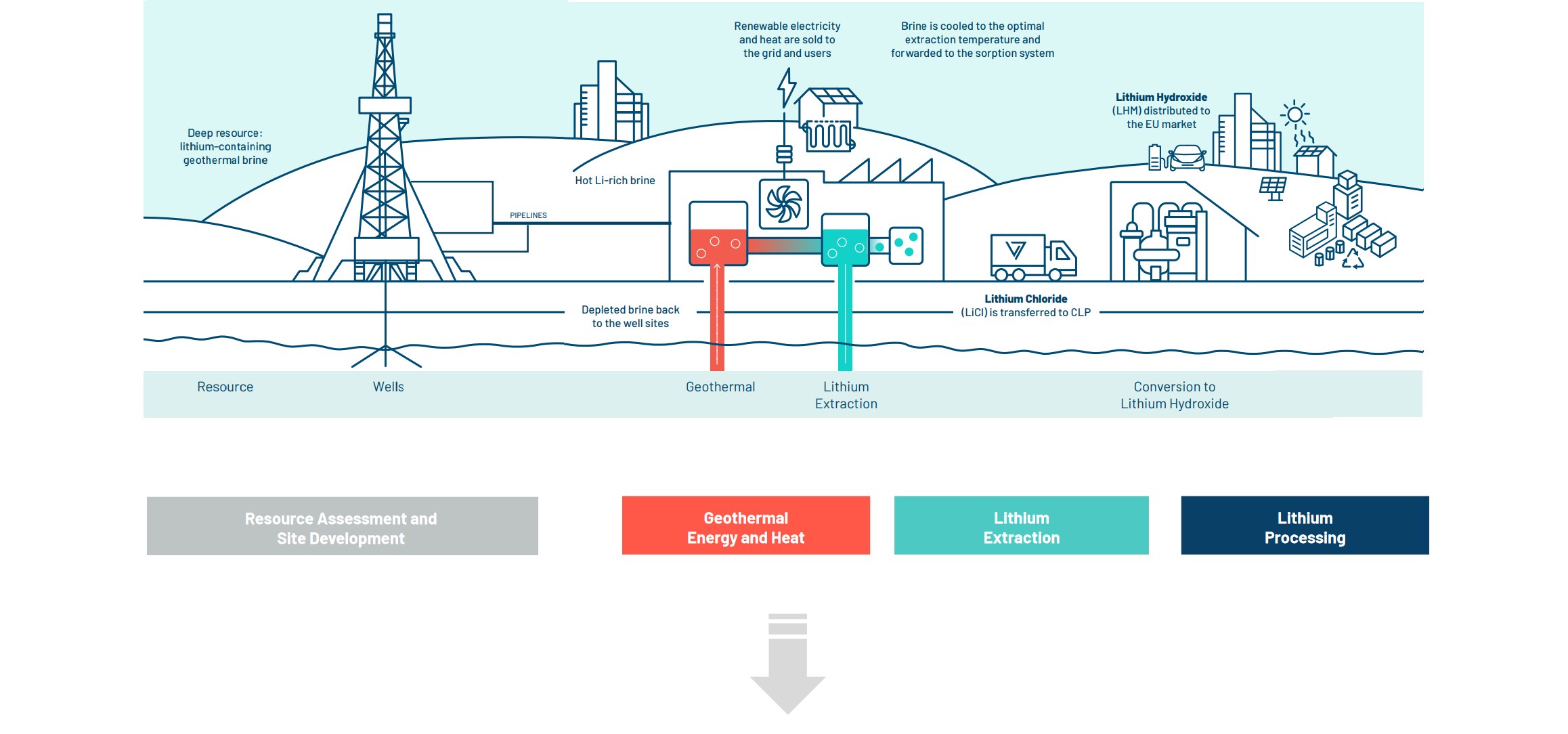
- Components: Well sites, Interconnected Pipeline and
Power (ICCP) - Process: drilling
- Outputs: geothermal Li-rich brine
Vulcan’s in-house drilling team, Vercana, drills geothermal wells, with electric drill rigs powered by the local grid, with the geothermal brine transported through the Interconnecting Pipeline & Power (ICPP).
- Components: Geothermal & Lithium Extraction Plant (G-LEP) geothermal power plant & ICCP
- Inputs: hot industrial water transported via ICCP
- Outputs: both geothermal energy
and heat
Hot industrial water is transferred to the geothermal power plant, where geothermal power and heat are produced and transferred to the electricity grid and district heating networks.
- Components: G-LEP, ICCP, Central Lithium Extraction Plant (CLP)
- Inputs: brine transported from well sites via ICCP to G-LEP
- Outputs: Lithium chloride
- Process: A-DLE , VULSORB®
After being transported to Vulcan’s G-LEP via the ICPP, lithium chloride is produced from the geothermal brine using VULSORB® and natural waste heat from the brine.
- Components: CLP
- Inputs: Lithium chloride, (geothermal heat to heat brine)
- Outputs: lithium hydroxide monohydrate
- Process: electrolysis
The lithium chloride is transferred via trucks to the Central Lithium Plant (CLP) in Höchst Industrie Park where, through electrolysis, it is converted into lithium hydroxide monohydrate (LHM). Finally the LHM is delivered to offtakers for use in EV batteries.
ZERO CARBON LITHIUM™ for the EV transition.
Lithium is the most crucial metal used in electric vehicle batteries, and the European Union has mandated targets all new cars to be 100% electric by 2035. This means that by 2030, Europe alone will require more than one million tonnes of lithium for electric vehicles, more than the entire global lithium market today. Vulcan aims to be the largest, most sustainable supplier of lithium chemicals and renewable energy from Europe for Europe, to empower a net zero carbon future.
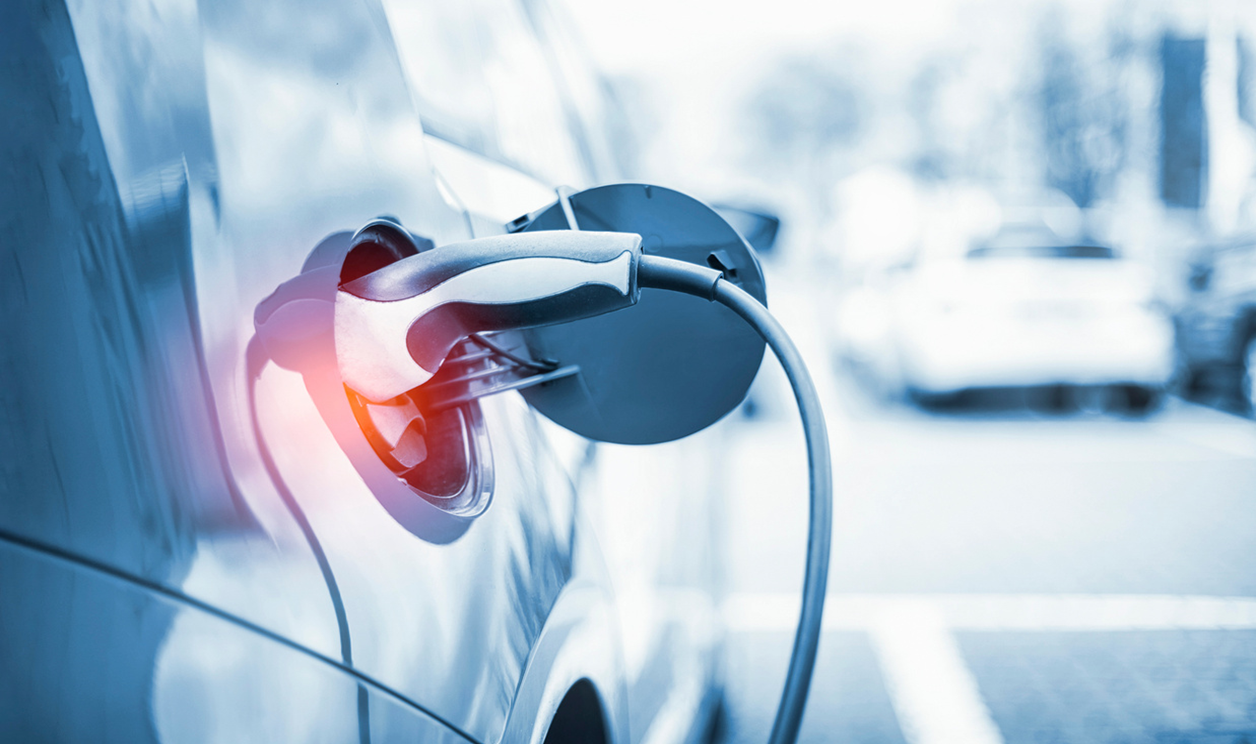
Unprecedented demand The role of Lithium.
Lithium is an critical raw material, indispensable as a component of batteries for e-mobility. However, to date there is no local integrated supply of lithium hydroxide in Europe to meet demands. Strategically placed in the heart of the European electric vehicle market, Vulcan is rapidly advancing the Zero Carbon Lithium™ Project, which aims to meet timely market entry and decarbonise the lithium supply chain, with the ability to expand to meet the unprecedented demand that is building in the European markets.
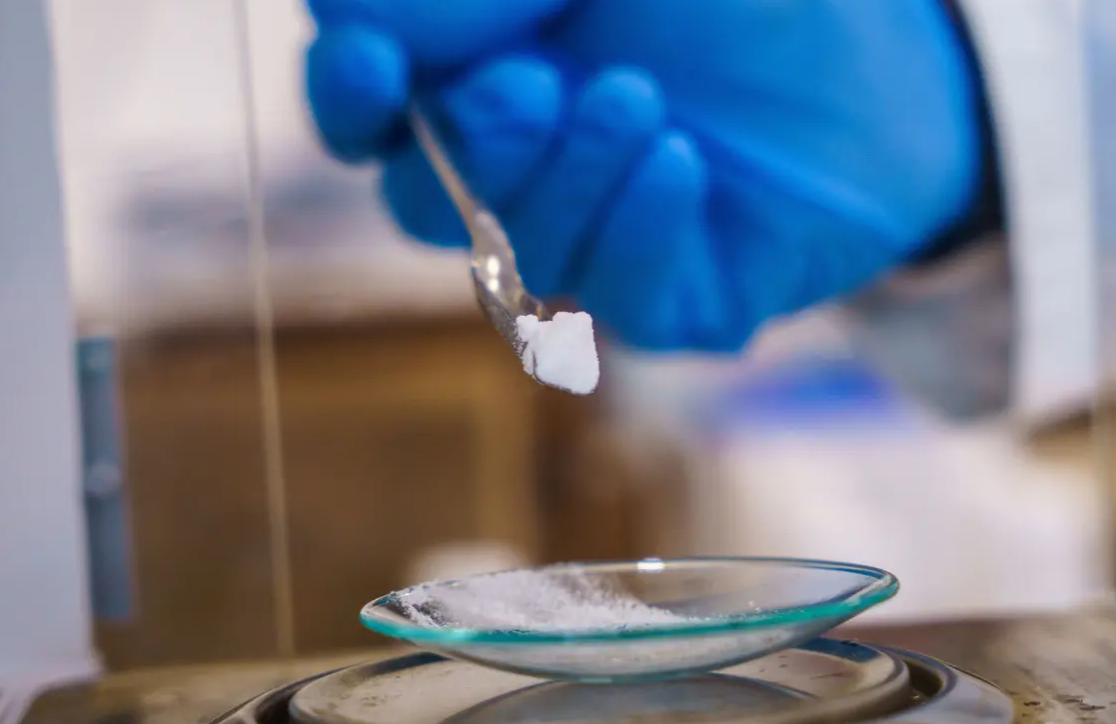
“We are aiming to become Europe’s first producer of domestically produced lithium, and the world’s first producer of carbon neutral lithium hydroxide for electrical vehicle batteries.”
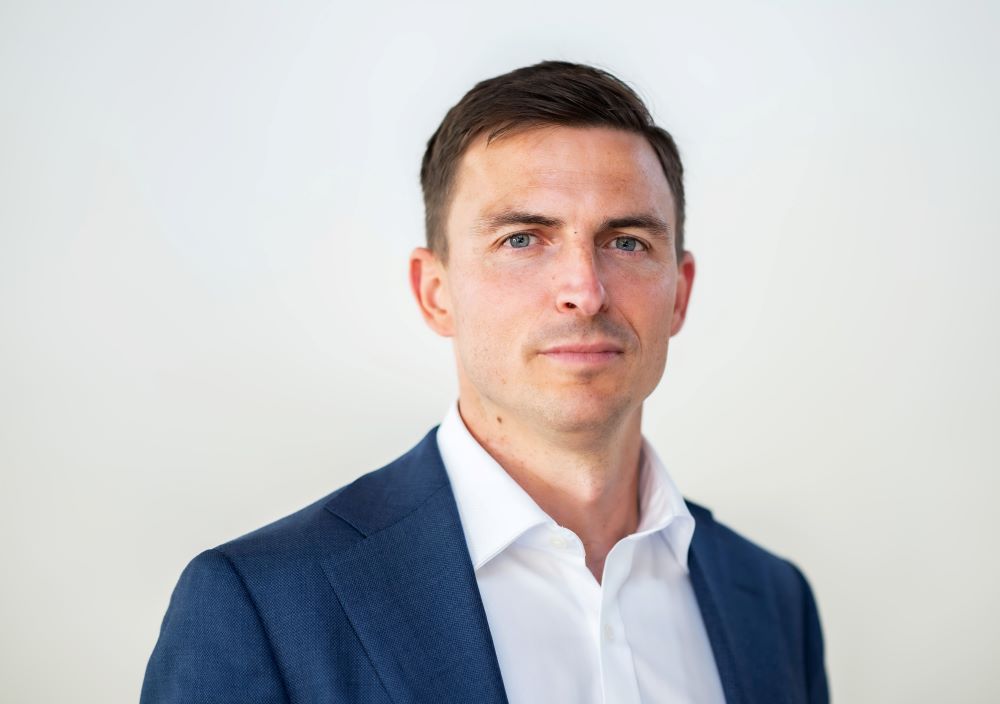
Growing wave of sustainable lithium supply VULSORB®: Enabling ZERO CARBON LITHIUM™.
Vulcan’s approach to lithium production creates a more sustainable and environmentally friendly solution: Adsorption-type Direct Lithium Extraction (A-DLE)
This method is as simple as it is proven.
Uniquely, the Company utilises geothermal energy to drive the lithium production. Geothermal heat has been used for years to generate renewable energy by bringing hot brine from underground to the surface, producing heat and power, and then returning the brine to the subsurface. As the brine is not only hot but also contains significant amounts of lithium, the metal is captured within the in-house developed sorbent VULSORB®, before the brine is returned to the subsurface. This closed-cycle process not only produces lithium but also generates excess renewable energy, benefiting local communities.
By combining geothermal energy and direct lithium extraction, Vulcan’s approach stands out with key environmental credentials: Unlike conventional methods that emit between 10 and 30 tonnes of CO2 per tonne of lithium hydroxide, Vulcan emits net zero tonnes of CO2, according to Life Cycle assesment studies. Additionally, legacy methods of lithium production consumes large quantities of water and land, while Vulcan’s process is significantly more efficient in resource usage, consuming only 1.6 tonnes of water net of products, and 6m2 of land per tonne of lithium hydroxide produced.
In a world where automakers like Volkswagen, Stellantis, and Renault are actively seeking clean and sustainable sources of raw materials for lithium-ion batteries, Vulcan’s innovative approach offers a promising solution that aligns with environmental, social, and governance (ESG) principles. It represents a major step towards more sustainable and responsible lithium production for the growing electric mobility industry. To learn more about Adsorption-type – Direct Lithium Extraction
We are ready for our project's Phase One.
The first renewable heat and power, lithium production and lithium hydroxide conversion project, to supply the battery EV industry from Europe. 24,000 tonne per annum lithium hydroxide approx. production planned from Vulcan’s first phase, enough for 500,000 EVs per annum.
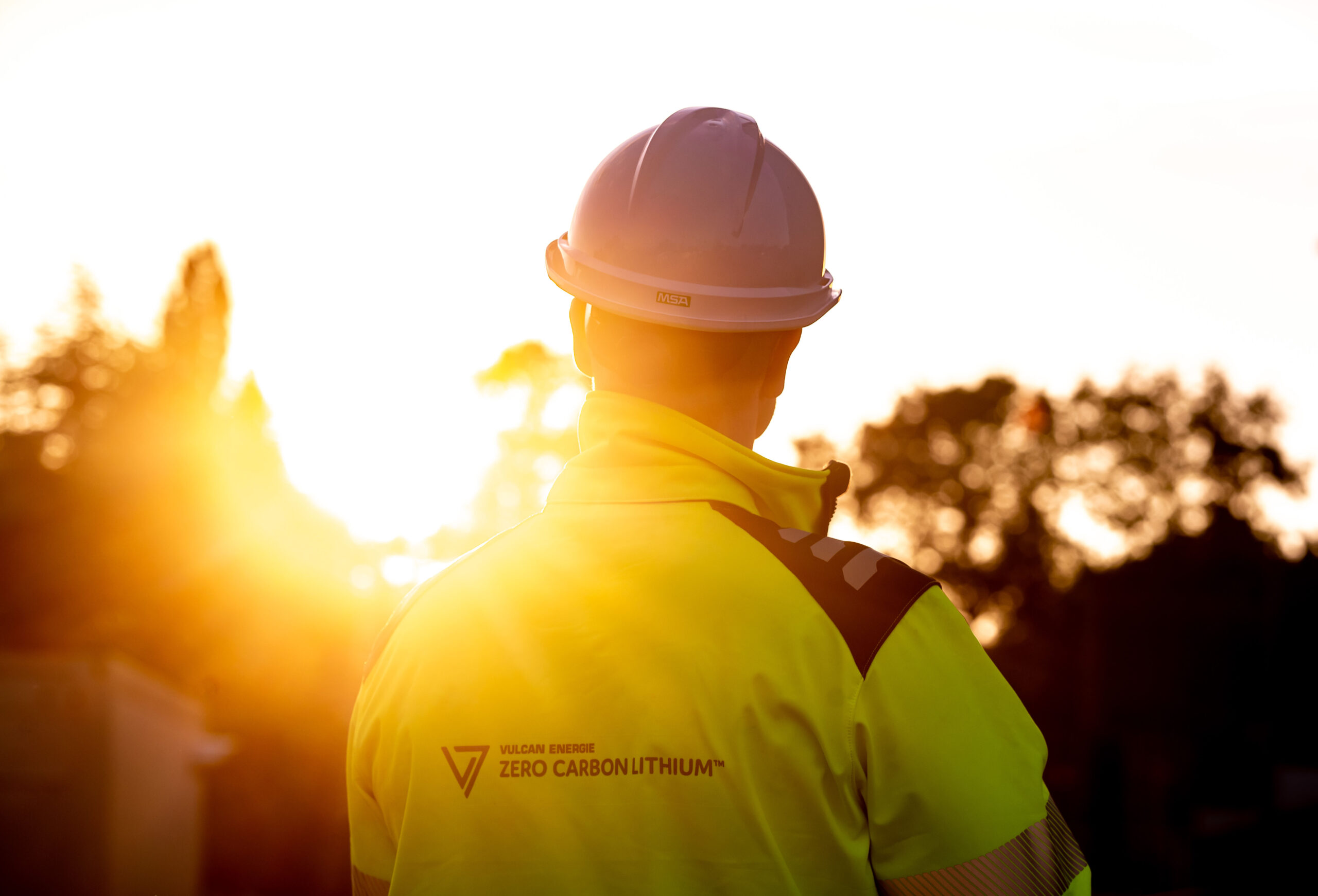
Strategically placed Focus Europe.
Europe’s transportation sector is changing, and electric vehicle sales are experiencing dynamic development: From 2035, all new cars and vans registered in the European Union are set to be zero emission.
This transition to carbon neutral transportation means Europe is increasing its production capacity for lithium-ion batteries, with direct implications on the demand for lithium:
- As 2035 approaches, Europe’s need for lithium hydroxide will increase to meet the demand from European automotive companies.
- Zero local supply of lithium hydroxide: 80% reliant on China.
- The current lithium supply is CO2 intensive but western automakers want low carbon sources. Vulcan’s Zero Carbon Lithium™ Project is aiming to reduce this heavy reliance on China for the supply of battery-grade lithium compound.
Europe is one of the fastest growing electric vehicle manufacturing markets in the world. It is exponentially increasing its domestic lithium-ion battery production capacity to meet this demand, making it also the fastest growing lithium market in the world. Predictions indicate Europe will need more than twice of what the entire global market produces today.
Strategically placed in the heart of the European electric vehicle market also gives Vulcan significant sustainable advantages:
- The European Commission has called for all electric vehicles to have a certificate indicating the total greenhouse gas emissions the vehicle produces.
- The European Commission requires ‘CO2 Passports’ for all electric vehicles, detailing their full CO2 impact whereby Volkswagen, Stellantis and other European automakers are placing greater emphasis on creating a carbon neutral supply chain for their cars.
- The current lithium supply chain does not cater for low carbon production processes. The Zero Carbon Lithium™ Project fills these gaps in the market and enables Vulcan to make a significant contribution to Europe’s objective of reaching net zero emissions by 2050.

